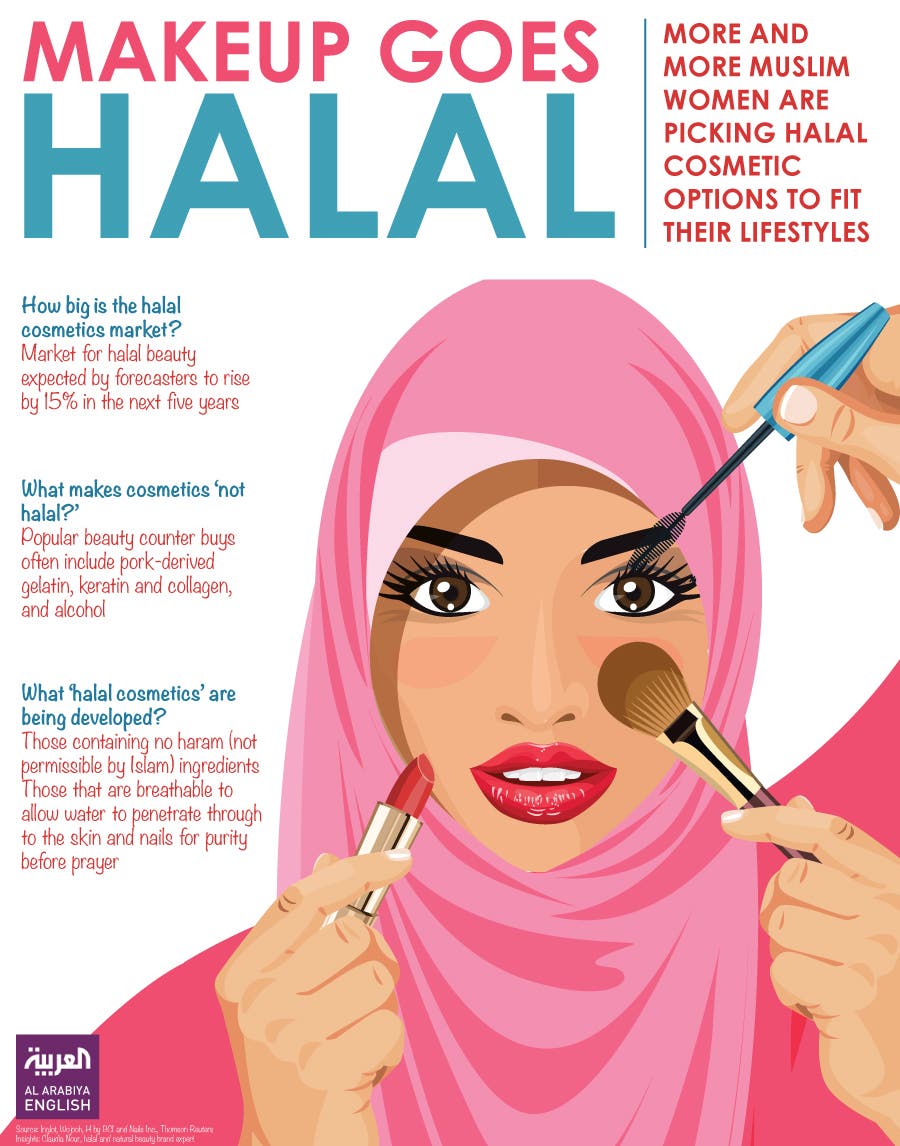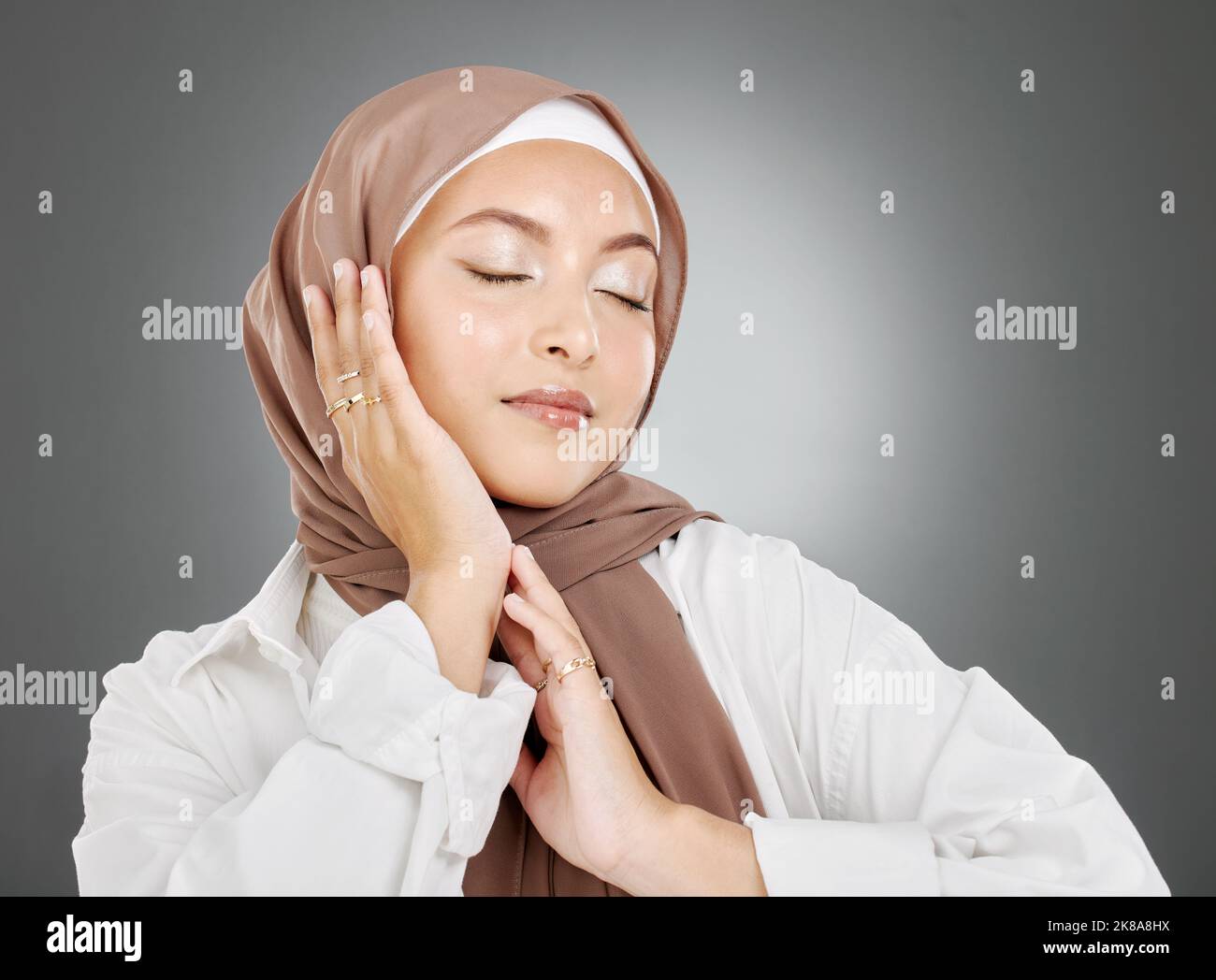The Intersection of Beauty and Faith: Exploring Makeup in Islam
Related Articles: The Intersection of Beauty and Faith: Exploring Makeup in Islam
Introduction
With great pleasure, we will explore the intriguing topic related to The Intersection of Beauty and Faith: Exploring Makeup in Islam. Let’s weave interesting information and offer fresh perspectives to the readers.
Table of Content
- 1 Related Articles: The Intersection of Beauty and Faith: Exploring Makeup in Islam
- 2 Introduction
- 3 The Intersection of Beauty and Faith: Exploring Makeup in Islam
- 3.1 Historical Context: Unveiling the Past
- 3.2 Religious Perspectives: Navigating the Guidelines
- 3.3 Contemporary Interpretations: A Spectrum of Practices
- 3.4 Practical Considerations: Tips for Informed Choices
- 3.5 Conclusion: Balancing Faith and Beauty
- 3.6 Frequently Asked Questions (FAQs)
- 4 Closure
The Intersection of Beauty and Faith: Exploring Makeup in Islam

The practice of using makeup has long been a part of human culture, serving various purposes from enhancing natural beauty to signifying social status. Within the Islamic faith, the approach to makeup is guided by a complex interplay of religious principles, cultural norms, and personal interpretations. This article aims to provide a comprehensive overview of makeup in Islam, examining its historical context, religious perspectives, and practical considerations.
Historical Context: Unveiling the Past
While the Quran does not explicitly address the use of makeup, its teachings emphasize modesty and the avoidance of ostentatious displays of wealth. Early Islamic societies, influenced by pre-Islamic traditions, saw the use of henna, kohl, and other natural pigments as integral to personal hygiene and beautification. These practices were generally accepted, provided they did not violate the principles of modesty and did not imitate the practices of non-Muslim cultures.
Over time, cultural influences and interpretations of Islamic teachings led to varying perspectives on makeup. In some regions, makeup was viewed as a tool for enhancing natural beauty and attracting a spouse, while in others, it was seen as a symbol of social status and extravagance. These diverse perspectives continue to shape the contemporary understanding of makeup within Islamic communities.
Religious Perspectives: Navigating the Guidelines
The Islamic approach to makeup is largely guided by the concept of hijab, which encompasses both physical and spiritual modesty. This principle translates into guidelines regarding clothing, behavior, and personal appearance. The application of makeup, therefore, is subject to interpretation within the framework of these guidelines.
Modesty and Propriety:
- Avoidance of Extravagance: Islam discourages the use of makeup for the purpose of attracting undue attention or provoking envy. The focus should be on enhancing natural beauty in a modest and dignified manner.
- Purpose and Intention: The use of makeup should not be driven by vanity or a desire to imitate non-Muslim practices. It should be used for enhancing natural beauty and promoting self-confidence within the boundaries of Islamic teachings.
- Gender and Social Context: While men are generally discouraged from using makeup, women are allowed to enhance their appearance, keeping in mind the principles of modesty and avoiding practices that are considered inappropriate in their social context.
Halal and Haram Considerations:
- Ingredients and Production: Islam emphasizes the importance of consuming and using products that are halal (permitted) and avoid haram (forbidden) substances. This applies to makeup as well. Ingredients derived from animals that are not slaughtered according to Islamic guidelines are considered haram, as are products that contain alcohol or other prohibited substances.
- Purity and Hygiene: Islam stresses the importance of cleanliness and purity. It is essential to use makeup products that are hygienically produced and stored, and to ensure that they are applied in a clean and sanitary manner.
Contemporary Interpretations: A Spectrum of Practices
Today, the approach to makeup within Islamic communities is diverse, reflecting the varying interpretations of religious guidelines and cultural influences. Some individuals choose to abstain from using any makeup, while others embrace a minimalist approach, focusing on enhancing natural features with subtle colors and textures. Still others incorporate a wider range of makeup techniques and products, adhering to the principles of modesty and appropriateness within their social context.
The key lies in understanding the underlying principles of Islamic teachings and applying them to personal choices in a thoughtful and respectful manner. This requires a balance between adhering to religious guidelines, respecting cultural norms, and embracing individual expression.
Practical Considerations: Tips for Informed Choices
Navigating the world of makeup within an Islamic framework requires careful consideration and informed choices. Here are some practical tips:
- Research and Awareness: Become informed about the ingredients and production methods of makeup products to ensure they align with Islamic guidelines.
- Modesty and Purpose: Choose makeup that enhances natural beauty without being excessive or distracting. Focus on creating a natural and balanced look.
- Social Context and Appropriateness: Consider the social context and cultural norms when choosing makeup styles and colors. Avoid practices that are considered inappropriate or provocative.
- Consultation and Guidance: Seek guidance from religious scholars or trusted individuals within your community regarding the interpretation of Islamic teachings on makeup.
Conclusion: Balancing Faith and Beauty
The practice of makeup in Islam is a complex and nuanced topic, requiring careful consideration and a balance between religious principles, cultural norms, and personal interpretations. By understanding the underlying teachings of modesty, purity, and intention, individuals can make informed choices that align with their faith and personal values. Ultimately, the goal is to enhance natural beauty in a way that reflects the spirit of Islamic teachings and promotes self-confidence and dignity.
Frequently Asked Questions (FAQs)
Q: Is it permissible to use makeup in Islam?
A: While the Quran does not explicitly address the use of makeup, the principles of modesty and avoiding extravagance are relevant. The permissibility of makeup is subject to interpretation within the framework of these guidelines.
Q: What types of makeup are considered haram (forbidden) in Islam?
A: Makeup containing ingredients derived from animals that are not slaughtered according to Islamic guidelines, alcohol, or other prohibited substances is considered haram.
Q: What are some tips for choosing halal makeup?
A: Research the ingredients and production methods of makeup products to ensure they are halal. Look for certifications from reputable Islamic organizations.
Q: Is it permissible for men to use makeup in Islam?
A: Generally, men are discouraged from using makeup, except for specific purposes such as covering blemishes or concealing scars.
Q: How can I balance the use of makeup with the principles of modesty?
A: Focus on enhancing natural beauty in a subtle and dignified manner. Avoid excessive makeup or styles that are considered provocative.
Q: What is the role of culture in interpreting Islamic teachings on makeup?
A: Cultural norms and interpretations of religious guidelines can influence the approach to makeup within different Islamic communities.
Q: How can I find guidance on makeup in Islam?
A: Consult with religious scholars, trusted individuals within your community, or reliable Islamic resources.
Q: What are the benefits of using makeup in a way that aligns with Islamic teachings?
A: Using makeup in a modest and dignified manner can enhance natural beauty, promote self-confidence, and contribute to a positive sense of self-esteem.
Q: What are some examples of halal and modest makeup styles?
A: Examples include using natural colors, focusing on enhancing features rather than covering them, and avoiding excessive or overly dramatic makeup.
Q: What is the role of intention in the use of makeup?
A: The intention behind using makeup should be aligned with Islamic principles, focusing on enhancing natural beauty and promoting self-confidence, rather than vanity or seeking undue attention.
Q: How can I ensure that my makeup choices reflect the spirit of Islamic teachings?
A: Reflect on the principles of modesty, purity, and intention. Choose makeup that enhances natural beauty in a way that aligns with your faith and personal values.
Q: What are some common misconceptions about makeup in Islam?
A: Some common misconceptions include the belief that all makeup is forbidden or that there are strict and inflexible rules regarding the use of makeup.
Q: How can I learn more about makeup in Islam?
A: Consult with religious scholars, trusted individuals within your community, or reliable Islamic resources. Explore online forums and communities that discuss makeup and its role in Islamic culture.







Closure
Thus, we hope this article has provided valuable insights into The Intersection of Beauty and Faith: Exploring Makeup in Islam. We appreciate your attention to our article. See you in our next article!